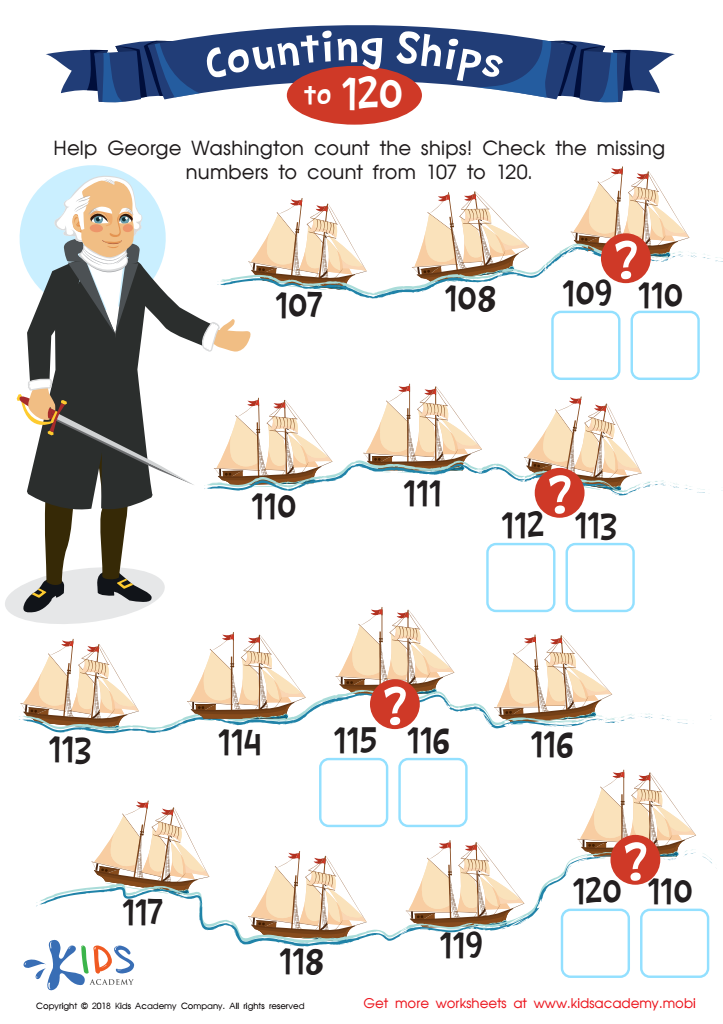Numerical sequencing Worksheets for Kids
1 filtered results
-
From - To


Counting Ships to 120 Worksheet
Question/Answer
How to train the Numerical sequencing skill in Grade 1 students learning about Numbers?
To train Grade 1 students in numerical sequencing, start with hands-on activities using physical objects like counting blocks or number cards. Begin with short sequences of familiar numbers and gradually increase complexity. Incorporate number lines for visual guidance. Use storytelling or everyday scenarios to make sequencing relatable, and incorporate games or apps that encourage practice in a fun, engaging way.
What are some effective activities to train students’ Numerical sequencing skill when teaching them about Numbers?
Effective activities for training students' numerical sequencing skills include puzzle solving with number sequences, playing number line games, engaging in sequencing races where students order numbers from lowest to highest or vice versa, using manipulatives like blocks or cards to physically sequence numbers, and incorporating technology through educational apps or online games that focus on sequencing and ordering numbers.
How does the mastery of the Numerical sequencing skill affect a student's performance at an early age?
Mastering numerical sequencing at an early age significantly enhances a student's mathematical understanding and ability. It lays the foundation for grasping more complex mathematical concepts, improves problem-solving skills, and promotes logical thinking. This early mastery positively impacts overall academic performance, as numerical skills are integral to many areas of learning.
 Assign to the classroom
Assign to the classroom



.jpg)







